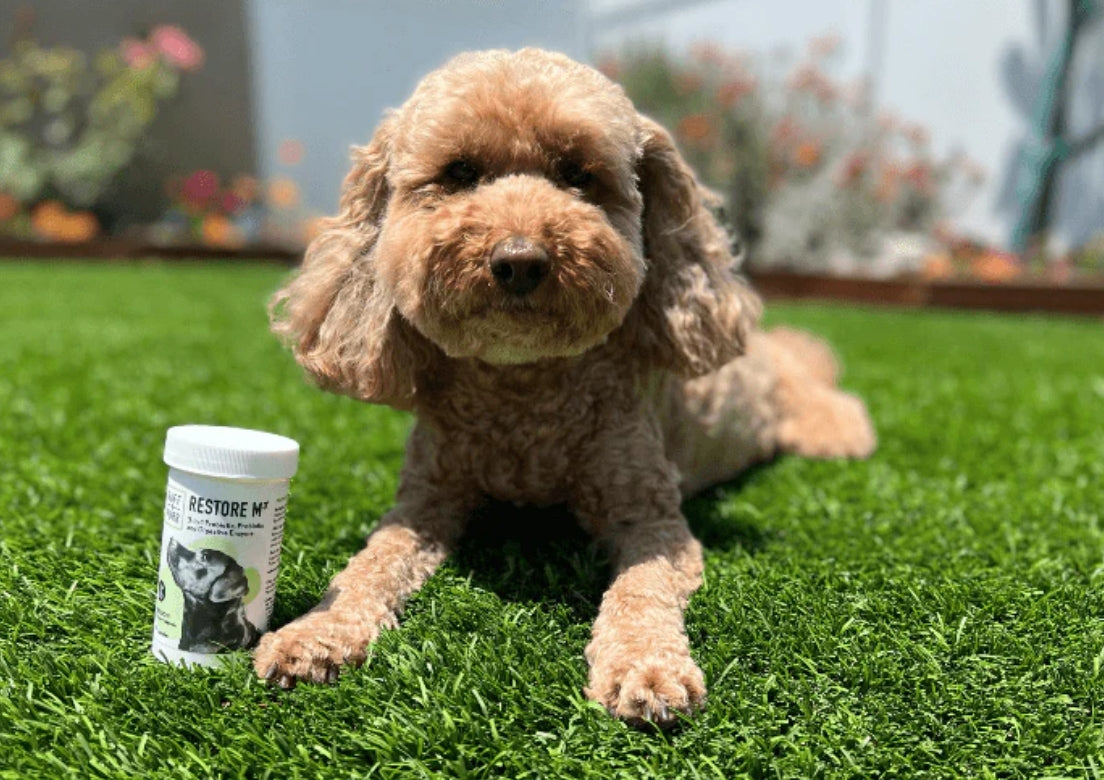
Foods which are naturally rich in probiotics include fermented vegetables and beans as well as fermented dairy products. Many countries are famous for their fermented foods: Japan for miso, natto and tempeh (fermented soybean products), Korea for kimchi (fermented vegetables including vegetables and chilies) and Germany for sauerkraut (fermented cabbage). Sauerkraut is thought to have originated in ancient China even though it is popular in many eastern European countries as well as Germany. All of these fermented foods are consumed around the globe today as well as many others you may have heard of like yogurts.
Fermented Dairy foods which are rich in probiotics include:
- Yogurt
- Drinkable Yogurt
- Raw Milk
- Raw Cheese
Other more popular sources of natural probiotics include kefir and kombucha which are fermented beverages with high counts of lactic acid bacteria. Many non-dairy yogurts and kefirs are also available too.
Though kimchi, kefir and kombucha are not recommended for dogs for a number of reasons, some other natural sources of probiotics could be appropriate as a healthy snack. These include sauerkraut (so long as there is no harsh spice, onion or garlic) as well as miso, tempeh or even plant based yogurts. When choosing a non-dairy yogurt, it’s important to know that many non-dairy options are made using nuts. Only give nut-based products in moderation as they are high in fats and be careful to avoid macadamia nuts at all costs as these can cause temporary paralysis in dogs which could be very scary for you and your pet.
Dairy for Dogs?
In addition, many people will give their dogs raw dairy such as raw goat’s milk as a source of probiotics. This is a good option for puppies and especially underweight dogs, but not appropriate for full-grown dogs and especially not for overweight dogs. This is because of the extremely high calories and high fat content in dairy. Giving raw milk is like giving your dog a meal replacement and perfect for dogs that need the extra calories, but not for those who don’t need to put on the extra weight. Also high fat diets (even from non-dairy yogurts or nut butters) are not appropriate for dogs. You can read more here on the AFFCO website about what is an appropriate macro-nutrient balance for an adult dog.
What Can You Use Instead?

All of the probiotic rich foods and beverages that are common in the fermented food category primarily contain lactic acid bacteria known as lactobacillus and bifidobacterium probiotics. These dog-appropriate food based probiotic options are great, but as with our pet’s diets, a variety is best when it comes to probiotics for pets too. Other types of bacteria such as bacillus subtilis and bacillus coagulans can also provide tremendous benefits. This is important as they can behave differently in your pet’s digestive tract and benefit them in different ways than lactobacillus probiotics. In fact, the bacillus subtilis and bacillus coagulans strains have been shown in multiple studies to shorten the span of diarrhea in dogs and cats. This is due to the strong and potent effect on their gut microbiome. The benefits of the bacillus probiotics for dogs are so well-known that several pet kibble manufacturers are starting to add these probiotics to their dog food. The bacillus strain probiotics are often referred to as soil-based organisms and they differ from their lactic acid counterparts as they are more hearty and not sensitive to temperature or pH allowing them to be in non-refrigerated foods and supplements.
Where else can you find probiotics for dogs?
A high quality probiotic supplement can also be a great probiotic option for you and your dog. While you may take a probiotic supplement or drink a kombucha containing both lactic acid bacteria and bacillus probiotics, a great option for your pet is to include Ruff & Purr’s Restore M3® into their daily routine. Restore M3® contains efficacious doses of both of these strains too. If your pet doesn’t like capsules in their foods or will not take a capsule as a treat, then you can open the Restore M3® capsule and sprinkle the powder on their kibble, raw or home-cooked meals. You can add it into a serving of raw goat’s milk for puppies and dogs that need to gain weight too. In addition to having a variety of probiotics, Restore M3® contains prebiotics that help probiotics grow as well as digestive enzymes to break down foods making them easier to digest. Also, the powder in the capsule does not contain any favors or off-putting odors so that it is an easy addition to even the pickiest eaters, including cats too!


